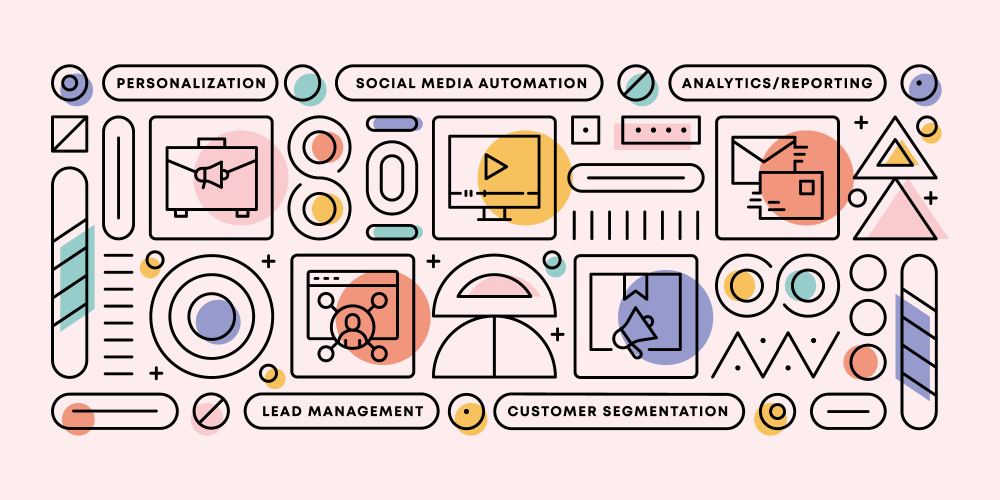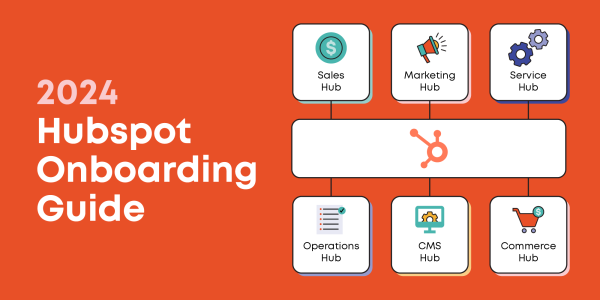Unlocking the Power of Marketing Automation
Aug 10, 2023

When it comes to building growth engines, few investments are as transformative as Marketing Automation. While having a Customer Relationship Management system (CRM) is certainly considered a necessity for the modern business landscape, the value and true potential of Marketing Automation is often misunderstood or overlooked as a necessary resource for sales and marketing collaboration.
So what is Marketing Automation?
Marketing automation is a process and set of tools that allow businesses to automate repetitive marketing tasks, streamline workflows, and engage with customers and prospects more effectively. It involves using software platforms and technologies to manage and automate various marketing activities, aiming to increase efficiency, save time, and improve overall marketing performance.
Key features of marketing automation typically include:
- Email Marketing Automation: Automating email campaigns and personalized messages based on user behavior or predefined triggers, such as website visits, form submissions, or specific actions.
- Lead Management: Tracking and managing leads throughout the customer journey, from initial contact to conversion, through lead scoring, nurturing, and segmentation.
- Customer Segmentation: Grouping customers based on specific criteria, such as demographics, behavior, or purchase history, to deliver targeted and relevant marketing content.
- Personalization: Tailoring marketing messages and content to individual users or segments, providing a more personalized experience and increasing engagement.
- Social Media Automation: Scheduling and managing social media posts, monitoring social interactions, and automating responses to specific interactions.
- Landing Pages and Forms: Creating and managing landing pages and forms to capture leads and gather information from prospects.
- Analytics and Reporting: Tracking and analyzing marketing performance metrics to measure the effectiveness of campaigns and identify areas for improvement.
Quite commonly, we see many businesses employ a CRM system like Salesforce, Zoho, or Monday, alongside distinct email marketing tools such as Constant Contact or Mailchimp. In this scenario, the Marketing team utilizes the email software to engage with potential clients visiting the website, subsequently transferring leads to the Sales team who operates within their designated CRM for sales pipeline management.
The trouble with a setup like this is the burden of manual processes required which presents a significant risk of potential leads slipping through the cracks. It also silos the data which prevents opportunities for taking action on the behaviors or engagement with the work the marketing team is doing on the website, ads, or emails.
The Crucial Sales to Marketing Hand-off
The Sales to Marketing hand-off might be one of the most crucial steps related to converting a potential customer into a closed deal. Depending on the product or service you are selling, a delayed contact time with the prospect could be the difference between getting a call scheduled and losing them to your competitor. Statistics show that responding within an hour of form submission yields a staggering 7x higher success rates in having a conversation with the prospect compared to allowing over an hour to pass.
OK, so it’s critical to respond promptly, but that’s just the starting point. Statistics also show that following up multiple times is key… sometimes it’s the 4th or 5th email that finally gets their attention. The idea of any individual salesperson having to write and manage to send 4 or 5 emails per lead certainly doesn’t scale, but systems do scale! By predefining value propositions and essential messages, Marketing Automation seamlessly generates a consistent flow of information for recipients, simultaneously alleviating the burden on your sales team.
Marketing Automation is not only a force multiplier, but it offers invaluable data on what’s working and what isn’t. Many systems, like HubSpot, incorporate A/B testing for the email content and subject lines. This feedback on what content your audience engages in is helpful, not just for sales efforts, but for your overall content strategy and SEO efforts as well.
By implementing marketing automation, businesses can achieve several benefits, including:
- Improved Lead Generation: More efficient lead capture and nurturing processes can lead to an increased number of qualified leads.
- Enhanced Customer Engagement: Personalized and timely interactions with customers can improve engagement and loyalty.
- Time and Cost Savings: Automating repetitive tasks saves time and allows marketing teams to focus on strategic activities.
- Better Marketing ROI: Targeted and data-driven campaigns tend to yield higher returns on investment.
- Increased Sales and Revenue: Effective lead management and nurturing can contribute to higher conversion rates and increased sales.
While marketing automation can be a powerful tool, it's essential to strike a balance between automation and maintaining a human touch in communication, as customers still value genuine interactions with brands. By utilizing the capabilities of marketing automation, you're not just optimizing your sales process; you're driving your entire growth strategy allowing you to flourish in this evolving digital landscape!
If you’re interested in hearing more about how we can enhance your marketing efforts, make sure you fill out this form to start a conversation with our team.
Unlocking the Power of Marketing Automation in Digital Marketing









Leave A Comment